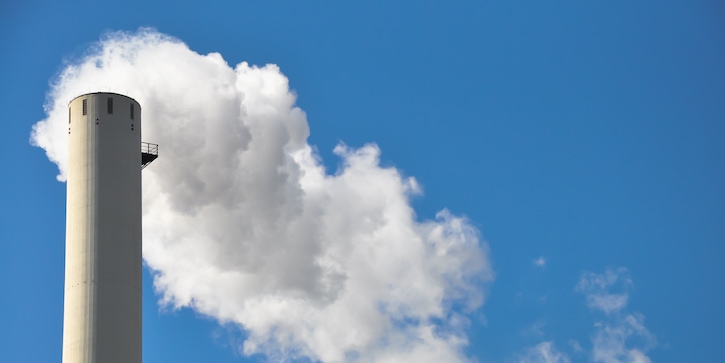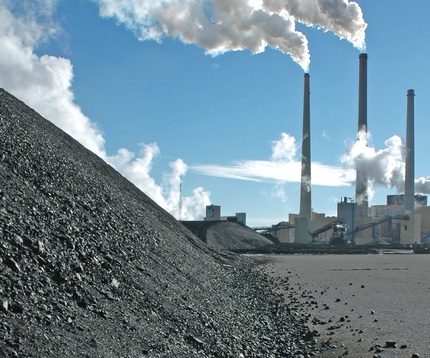
How Linde's hydrogen expertise and hydrogen-ready solutions help steelmaking and other heavy industry customers along their decarbonization journey.
Linde's tried and tested NOx removal technology offers customers a high performance, low-cost route to zero-emission results.

In 2019, 502kg of municipal waste was generated per capita in Europe. While great strides have been made to reduce, reuse and recycle, only half of this waste was recycled (48%), leaving the other half to be treated.
To date, that treatment has required burying (landfill) or burning (waste incineration). The share of generated waste going to landfill has diminished considerably, from 61 % in 1995 to 23 % in 2019, but although reducing in number, the scars that mark our landscape are still an all too visible reminder of the environmental damage of this treatment method. In the same period, the amount of municipal waste incinerated in the EU has seen a 100 % rise: accounting for 60 million tonnes in 2019 - and projections say it’s set to continue. But with waste incineration comes a different set of environmental challenges of the type we cannot necessarily see: emissions. And that’s where LOTOX® - Linde’s nitrogen oxide removal technology - comes in.
“Burning waste - or any industrial combustion process for that matter - produces harmful nitrogen oxides (NOx) which have a devastating effect on human health and the environment,” explains Paolo Kirchpfening, Global Commercialization Linde Technologies. As a result, the European Commission, for instance, is setting ever-stricter environmental standards across waste incineration plants. “Our customers must meet these limits, it’s just a question of how,” adds Kirchpfening.
Up until now, the best available techniques (BATs) as named by the European Commission are selective catalytic reduction (SCR) and selective non-catalytic reduction (SNCR), but both present limitations, not least in NOx removal performance. “SNCR can achieve efficiency rates of between 50-80%; SCR between 70-90+% but LOTOX can outperform both and achieve close to 100% efficiency,” says Kirchpfening.
“The technique is simple and easily integrable, as Kirchpfening explains: “We essentially drill a hole and inject ozone into the plant’s flue gas tube and the reaction happens.” The ozone oxidizes the NOx gases into higher, more reactive and soluble nitrogen oxides that can be easily removed downstream. Simple perhaps. But proven effective. Indeed, LOTOX is not a new technology from Linde. It’s already listed as a BAT in the refinery sector and now is the time for its potential to be realized in a new application.
“We’re focusing now on municipal waste incineration plants because this is where we believe our solution offers, from an economic standpoint, an interesting alternative to what currently exists on the market,” says Kirchpfening. LOTOX is particularly attractive for customers of a certain size and consumption because of its lower CAPEX requirements - and waste incineration plants are about “the sweet spot” as Kirchpfening puts it.
Linde recently demonstrated the NOx removal capabilities and economic viability of LOTOX with a full-scale trial in conjunction with its partners DOW and Xylem. At the Stade rotary kiln where hazardous waste is incinerated, LOTOX was capable of 100% NOx reduction - reaching nearly zero-emissions.
“Together with our partner Xylem, we offer a turnkey solution for LOTOX. Xylem provides the ozone generator, and we provide the oxygen that feeds it as well as the injector,” explains Kirchpfening. Linde’s solution also covers analytics, support and consultancy.

For companies struggling to meet the tightening NOx restrictions, Linde offers LOTOX as a polishing technology - for use in combination with SNCR for example. But for customers that want to be on the forefront of environmental sustainability, LOTOX offers a complete alternative. “LOTOX is the only available technique that can enable a zero-emission future in this space - and this is becoming more and more important for companies,” says Kirchpfening. Indeed, it’s not the trend anymore to simply meet the limits that authorities impose and no more. “It’s about committing to shaping a sustainable future themselves. We offer the right technologies to support companies in this quest.”

How Linde's hydrogen expertise and hydrogen-ready solutions help steelmaking and other heavy industry customers along their decarbonization journey.

Linde offers a range of effective application technology solutions for air and water emissions from conventional power production